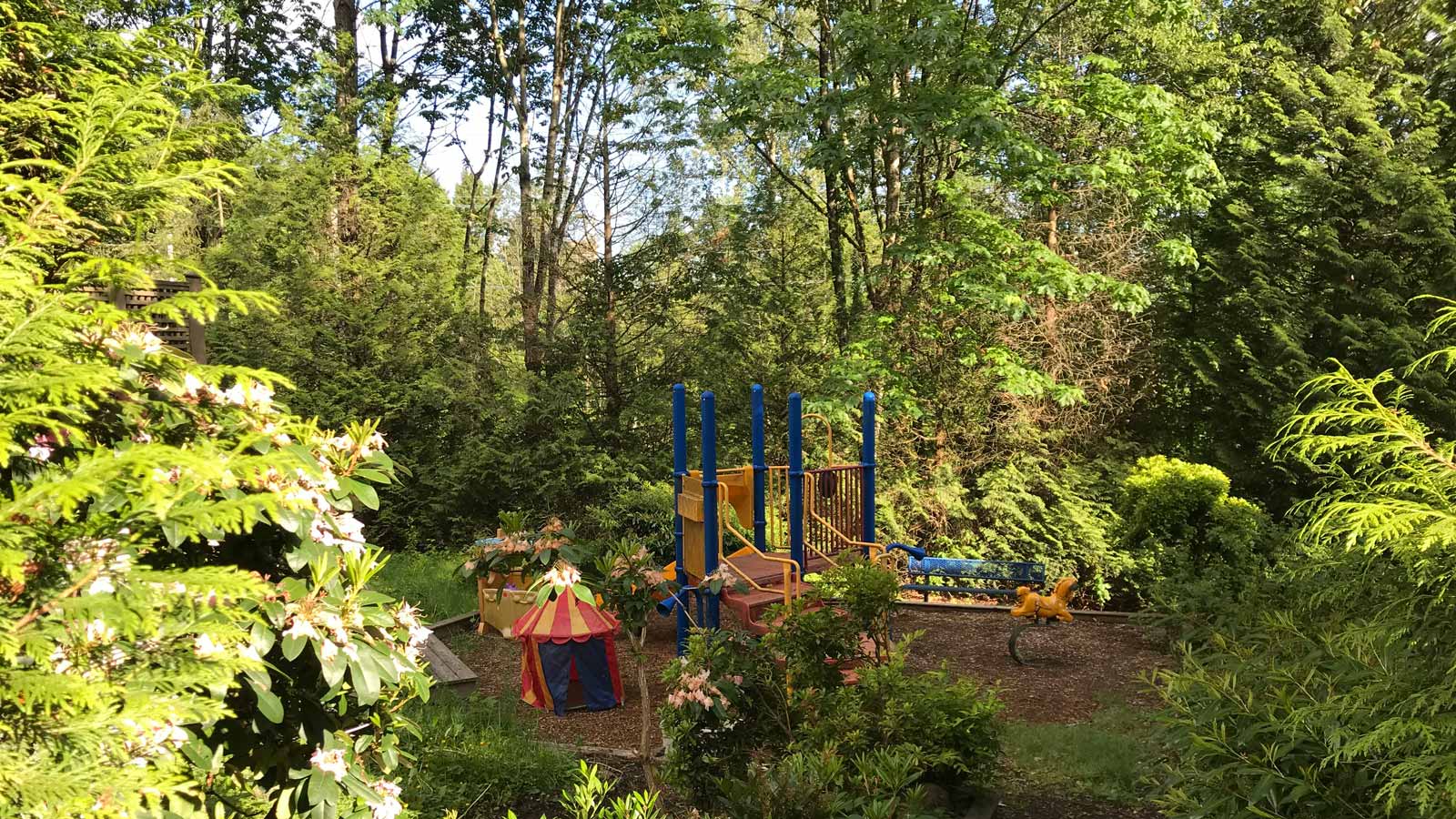Back to top ^


Landscaping
Cities experience heat island effects, warmer temperatures than undeveloped land, due to pavement and buildings that absorb light and retain heat.
- Treating hard surfaces
- Green roofs (and blue green roofs) can help reduce temperatures and even reduce energy use, but they may not be so easy to implement due to cost and structural limitations. If you’re planning roof work, however, they might be something to consider.
- There are many ground-level surface options to focus on like asphalt and concrete. In addition to adding to the heat problems, these (usually impermeable) surfaces also worsen run-off, which is more an issue as weather patterns change and precipitation becomes less predictable, but more intense when it falls. Especially as these surfaces naturally come up for renewal, consider other options:
- are hard surfaces necessary at all?
- Could some be eliminated? Would it make sense to invest in, say, porous concrete pavers that let water through, rather than just run off, and which don’t contribute to heating in the same way as other artificial surfaces?
- Can any of your co-op’s hard surfaces be shaded from the sun?
- Trees
- This one gets a separate category. Trees are great! They can provide shading – for people and for many of the hard surfaces that contribute to those heat island effects. Deciduous trees offer advantages in that they provide maximum shade when you need it most, but also let light through during the winter months.
- On the mitigation side, trees can also remove carbon dioxide, the most obvious greenhouse gas, from the air.
- Trees reduce other pollutants as well and also help absorb water (which might otherwise overwhelm storm sewer systems). Some trees produce edible fruit, perhaps reducing, in a small way, the need for food to be transported from other locations.
- Plant choices
- Lawns take a fair amount of water (and work!) to maintain, but vegetation can offer cooling and improve resilience. As water becomes less available or expensive, co-ops might want to consider plants, including groundcovers, that are more tolerant to dry conditions (xerophytes), and which may be less expensive to maintain.
- Careful choices may also improve biodiversity, especially when looking at plants native to your location, and which may reduce the need for artificial fertilizers and pesticides.
- If you grow food or ornamental plants more intensively, you can consider planting drought-resistant varieties and (drip) irrigation systems that most efficiently use water and minimize evaporation. Rain barrels to collect water can also help.
- You may already have knowledge in your co-op that can help answer related questions about plant selection. If not, you might consider hiring some assistance from outside. And on that subject, trees again…
- Consider hiring an arborist to review the status of your existing trees. Are any stressed, or unstable, or needing attention? What other trees might work on your property?